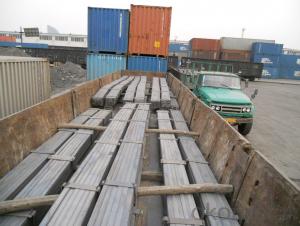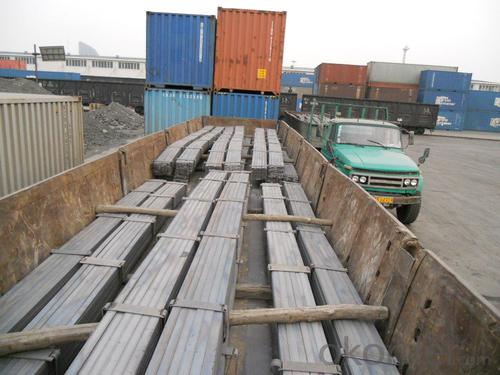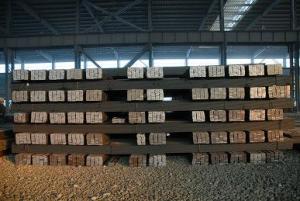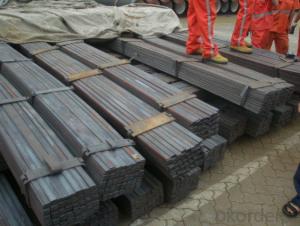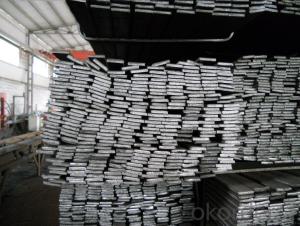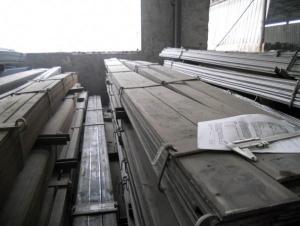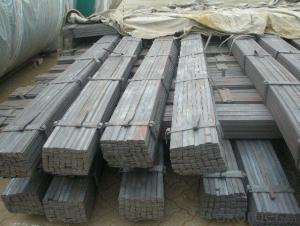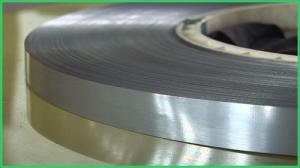Spring Steel Hot Rolled Flat Bar
- Loading Port:
- China Main Port
- Payment Terms:
- TT or LC
- Min Order Qty:
- -
- Supply Capability:
- -
OKorder Service Pledge
OKorder Financial Service
You Might Also Like
Product Description:
OKorder is offering high quality Steel Flat Bar at great prices with worldwide shipping. Our supplier is a world-class manufacturer of steel, with our products utilized the world over. OKorder annually supplies products to European, North American and Asian markets. We provide quotations within 24 hours of receiving an inquiry and guarantee competitive prices.
Product Applications:
Steel Flat Bar are ideal for structural applications and are widely used in the construction of buildings and bridges, and the manufacturing, petrochemical, and transportation industries.
Product Advantages:
OKorder's Steel Flat Bar are durable, strong, and resist corrosion.
Main Product Features:
· Premium quality
· Prompt delivery & seaworthy packing (30 days after receiving deposit)
· Corrosion resistance
· Can be recycled and reused
· Mill test certification
· Professional Service
· Competitive pricing
Product Specifications:
Commodity: Mild Steel Flat Bar
Standard: GB;JIS
Material: Q195-235;SS400
Origin place: China
Thickness: 3mm-30mm
Width:20mm-200mm
Length: Max 12m
Certification: SGS/BV

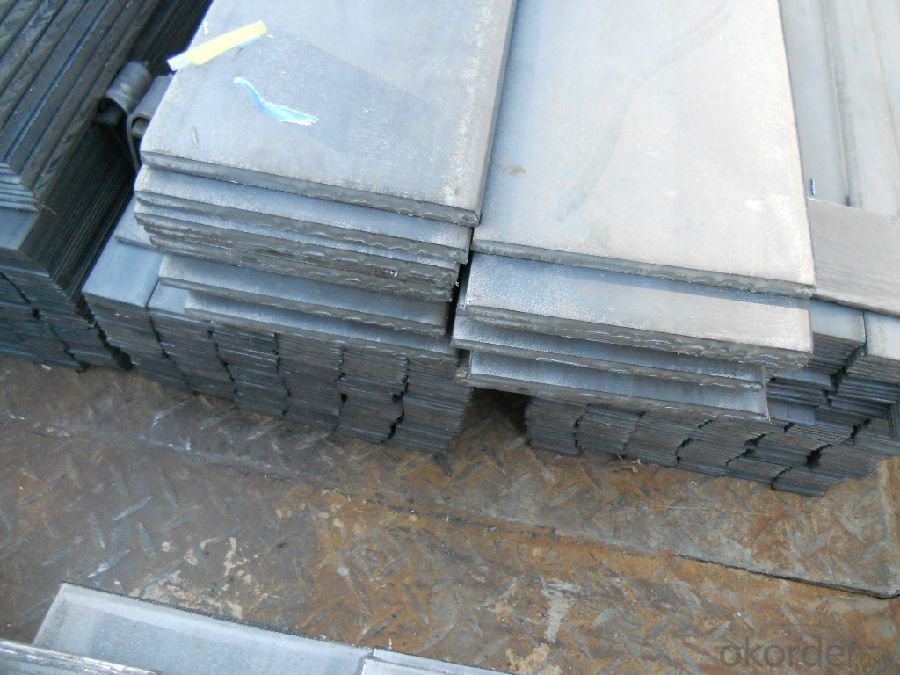
Usage/Applications of Steel Flat Bar
Widely used for construction, Machinery manufacturing, Iron tower steel structure, Shipbuilding; Steel grating, Staircase, Bridge, Viaduct, Railway spare parts, Boilers making etc.
Packaging & Delivery of Mild Steel Flat Bar
Packaging Details: The Mild Steel Flat Bars are packed in bundles and loaded in 20 feet/40 feet container, or shipped by bulk cargo ,also we can do as customer's requirements.
Delivery Details:30~45 days upon the receipt of buyer payment by T.T. or L/C.
Production Flow of Steel Flat Bar
The Mild steel flat bar is made through three processes:
1.Feeding the material: Feeding the row material (the steel plate) to Slitting Line.
2.Slitting:The steel plate would be slitted into expected width by lengthways cutter.
3. Leveled and cutting: The plat bar would be ground into level by the grinder and then cut into required length
FAQ:
Q1: Why buy Materials & Equipment from OKorder.com?
A1: All products offered byOKorder.com are carefully selected from China's most reliable manufacturing enterprises. Through its ISO certifications, OKorder.com adheres to the highest standards and a commitment to supply chain safety and customer satisfaction.
Q2: How do we guarantee the quality of our products?
A2: We have established an advanced quality management system which conducts strict quality tests at every step, from raw materials to the final product. At the same time, we provide extensive follow-up service assurances as required.
Q3: How soon can we receive the product after purchase?
A3: Within three days of placing an order, we will begin production. The specific shipping date is dependent upon international and government factors, but is typically 7 to 10 workdays.
Q4: What makes stainless steel stainless?
A4: Stainless steel must contain at least 10.5 % chromium. It is this element that reacts with the oxygen in the air to form a complex chrome-oxide surface layer that is invisible but strong enough to prevent further oxygen from "staining" (rusting) the surface. Higher levels of chromium and the addition of other alloying elements such as nickel and molybdenum enhance this surface layer and improve the corrosion resistance of the stainless material.
- Q: How does special steel maintain its strength at different temperatures?
- Special steel maintains its strength at different temperatures due to its unique composition and specific manufacturing processes. The addition of alloying elements, such as chromium, nickel, and molybdenum, enhances the steel's ability to resist thermal degradation and maintain its structural integrity. Additionally, special heat treatment techniques, such as quenching and tempering, are applied to improve the steel's microstructure, resulting in increased strength and toughness at various temperature ranges.
- Q: How does free-cutting steel improve machinability?
- Free-cutting steel improves machinability by having a higher sulfur content, which acts as a lubricant during the machining process. This reduces friction and heat generation, leading to improved chip formation and easier cutting, resulting in higher cutting speeds, improved surface finish, and extended tool life.
- Q: What is the significance of vanadium in special steel?
- Due to its unique properties and effects on the performance of steel, vanadium is an important element in special steel. Special steel, which is designed for specific applications requiring strength, durability, and specific characteristics, benefits greatly from the inclusion of vanadium. One of the primary rationales behind using vanadium in special steel is its ability to increase the steel's strength and toughness. Vanadium forms robust carbides within the microstructure of the steel, which prevent grain growth and enhance its resistance to deformation and cracking. This makes the steel highly suitable for applications that demand exceptional strength, such as the construction of bridges, high-rise buildings, and machinery. In addition to strength, vanadium also improves the hardenability of the steel. Hardenability refers to the steel's capacity to be hardened through heat treatment methods like quenching and tempering. Vanadium enhances the hardenability of the steel, enabling easy achievement of desired properties like increased wear resistance and improved cutting performance. This makes vanadium-containing special steel ideal for tools, dies, and other applications requiring hardness and wear resistance. Furthermore, vanadium contributes to the steel's resistance to corrosion. It creates stable oxide layers on the steel's surface, acting as a protective barrier against corrosion and oxidation. This is particularly advantageous in harsh environments like marine environments or chemical processing plants. Moreover, vanadium also enhances the heat resistance and thermal stability of special steel. It helps the steel retain its strength and hardness even at high temperatures, making it suitable for applications involving high-temperature environments like aerospace components and automotive engine parts. In summary, the importance of vanadium in special steel lies in its ability to enhance the steel's strength, toughness, hardenability, corrosion resistance, and heat resistance. These properties make vanadium-containing special steel highly sought after in various industries that require exceptional performance and reliability.
- Q: What are the properties and characteristics of special steel?
- Special steel, also known as alloy steel, has several unique properties and characteristics. Firstly, it possesses exceptional strength, making it highly resistant to deformation and wear. This strength is often achieved through the addition of various elements such as chromium, nickel, and molybdenum, which enhance its toughness and hardness. Additionally, special steel exhibits excellent corrosion resistance, allowing it to withstand harsh environments without succumbing to rust or degradation. It also demonstrates good heat resistance, making it suitable for applications involving high temperatures. Moreover, special steel can be easily machined and welded, offering versatility in manufacturing processes. Overall, the properties and characteristics of special steel make it a preferred material for a wide range of industries, including aerospace, automotive, and construction.
- Q: What is the role of special steel in the construction industry?
- Special steel plays a crucial role in the construction industry as it provides enhanced strength, durability, and resistance to corrosion. It is commonly used in the construction of high-rise buildings, bridges, and infrastructure projects, where structural integrity is crucial. Special steel's unique properties enable it to withstand extreme conditions and heavy loads, ensuring the safety and longevity of construction projects. Additionally, its versatility allows for the fabrication of various components, such as beams, columns, and reinforcement bars, making it an indispensable material in the construction industry.
- Q: How does special steel contribute to the chemical resistance of products?
- Special steel, also known as stainless steel, contributes significantly to the chemical resistance of products due to its unique composition and properties. These steels contain a high percentage of chromium, which forms a thin, passive oxide layer on the surface of the steel. This oxide layer acts as a protective barrier, preventing corrosive substances from coming into direct contact with the steel and causing chemical reactions. The chromium in special steel forms a stable oxide layer that is highly resistant to corrosion, even in harsh chemical environments. This oxide layer is self-repairing, meaning that if it is damaged or scratched, it will quickly reform and continue to protect the steel. Additionally, the presence of other alloying elements such as nickel and molybdenum further enhances the chemical resistance of special steel. The chemical resistance of special steel extends to a wide range of corrosive substances, including acids, alkalis, and salts. This makes it highly suitable for applications in various industries such as chemical processing, pharmaceuticals, food processing, and marine environments. By using special steel in the manufacturing of products, the risk of chemical degradation and corrosion is significantly reduced. This leads to increased product lifespan, improved performance, and reduced maintenance costs. Furthermore, it ensures that the integrity and safety of the products are maintained, as chemical resistance is crucial in preventing leaks, contamination, and structural failures. In summary, special steel contributes to the chemical resistance of products by forming a protective oxide layer on its surface, which shields it from corrosive substances. Its unique composition and properties make it highly resistant to chemical degradation, ensuring the longevity and reliability of products in various industrial applications.
- Q: How does nitriding steel improve hardness and wear resistance?
- Nitriding steel improves hardness and wear resistance by introducing nitrogen into the steel's surface through a heat treatment process. This forms nitrides, which are hard compounds that increase the material's surface hardness. Additionally, the nitrogen atoms create compressive stresses within the structure, enhancing the material's resistance to wear and fatigue.
- Q: How does special steel resist wear and tear?
- Special steel resists wear and tear through its unique composition and heat treatment processes. It typically contains additives such as chromium, molybdenum, and vanadium, which enhance its hardness, corrosion resistance, and durability. Additionally, special steel undergoes specialized heat treatment techniques like quenching and tempering, which further improve its strength and ability to withstand stress and abrasion. These properties make special steel highly resistant to wear and tear, allowing it to maintain its structural integrity and performance over extended periods of use.
- Q: What are the different cutting grades of special steel?
- Various industries commonly utilize multiple cutting grades of special steel, each possessing specific properties and characteristics tailored for different cutting applications. High-speed steel (HSS), for instance, is renowned for its exceptional hardness, wear resistance, and heat resistance, enabling it to retain its hardness under high temperatures, rendering it perfect for high-speed machining operations. Another versatile cutting grade is tool steel, celebrated for its high hardness, toughness, and abrasion resistance, making it suitable for various cutting tools, dies, and molds. Stainless steel, on the other hand, is a sought-after cutting grade due to its corrosion resistance and durability, particularly in industries where precision cutting and cleanliness are paramount, such as food, medical, and automotive sectors. Carbon steel, a commonly used cutting grade, boasts impressive strength and toughness, making it ideal for cutting tools, knives, and blades. However, it requires proper maintenance and care to prevent rusting, as it is susceptible to corrosion. Conversely, alloy steel is a cutting grade created by combining different elements to enhance its properties. It offers improved hardness, strength, and wear resistance, rendering it suitable for high-stress cutting applications prevalent in the aerospace, automotive, and construction industries. These examples merely scratch the surface of the diverse range of cutting grades of special steel available. Each grade possesses unique properties and advantages, empowering manufacturers to select the most appropriate grade based on specific cutting requirements and conditions.
- Q: What are the future trends and innovations expected in special steel production?
- In the future, several trends and innovations are expected to shape the special steel production industry. Here are a few key areas where advancements are likely to occur: 1. Advanced Manufacturing Techniques: Special steel manufacturers are likely to adopt advanced manufacturing techniques such as additive manufacturing (3D printing) and digitalization. These technologies will facilitate the production of complex geometries, reduce waste, and enable customization of special steel products. 2. Sustainable Production: As environmental concerns continue to grow, there will be a focus on sustainable production methods in the special steel industry. This includes the adoption of energy-efficient processes, recycling and reusing materials, and minimizing the carbon footprint of steel production. 3. High-Strength and Lightweight Alloys: With the increasing demand for lightweight materials in various sectors like automotive and aerospace, special steel production is expected to focus on developing high-strength and lightweight alloys. These alloys will offer improved performance while reducing the weight of components, leading to fuel efficiency and enhanced sustainability. 4. Nanotechnology and Microstructural Engineering: Nanotechnology and microstructural engineering will play a significant role in enhancing the properties of special steels. By manipulating the material at the nanoscale, manufacturers can improve strength, toughness, corrosion resistance, and other characteristics. 5. Enhanced Surface Treatments: Advances in surface treatments, such as coatings, will contribute to the performance and longevity of special steel products. Innovative surface treatments will provide increased resistance to wear, corrosion, and heat, expanding the range of applications for special steels. 6. Digitalization and Data Analytics: The integration of digital technologies and data analytics will revolutionize special steel production. Smart factories with interconnected systems will enable real-time monitoring, predictive maintenance, and improved quality control, resulting in higher productivity and efficiency. 7. Automation and Robotics: Automation and robotics will continue to play a vital role in special steel production. Automated processes will optimize productivity, reduce human errors, and improve worker safety, thereby enhancing overall operational efficiency. 8. Industry 4.0 Integration: The special steel industry is expected to embrace Industry 4.0 principles, such as the Internet of Things (IoT) and artificial intelligence (AI). These technologies will enable seamless connectivity, intelligent decision-making, and predictive analysis, leading to improved productivity, cost-effectiveness, and competitiveness. Overall, the future of special steel production is likely to be driven by advancements in manufacturing techniques, sustainable practices, material engineering, digitalization, and automation. These innovations will not only enhance the performance and quality of special steel products but also contribute to a more sustainable and efficient industry.
Send your message to us
Spring Steel Hot Rolled Flat Bar
- Loading Port:
- China Main Port
- Payment Terms:
- TT or LC
- Min Order Qty:
- -
- Supply Capability:
- -
OKorder Service Pledge
OKorder Financial Service
Similar products
Hot products
Hot Searches
Related keywords
